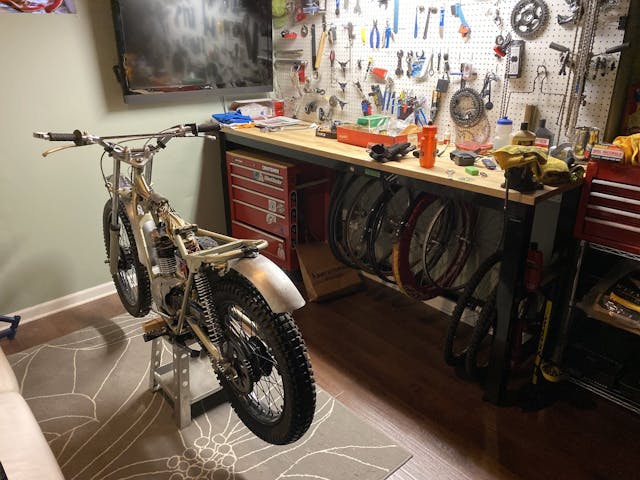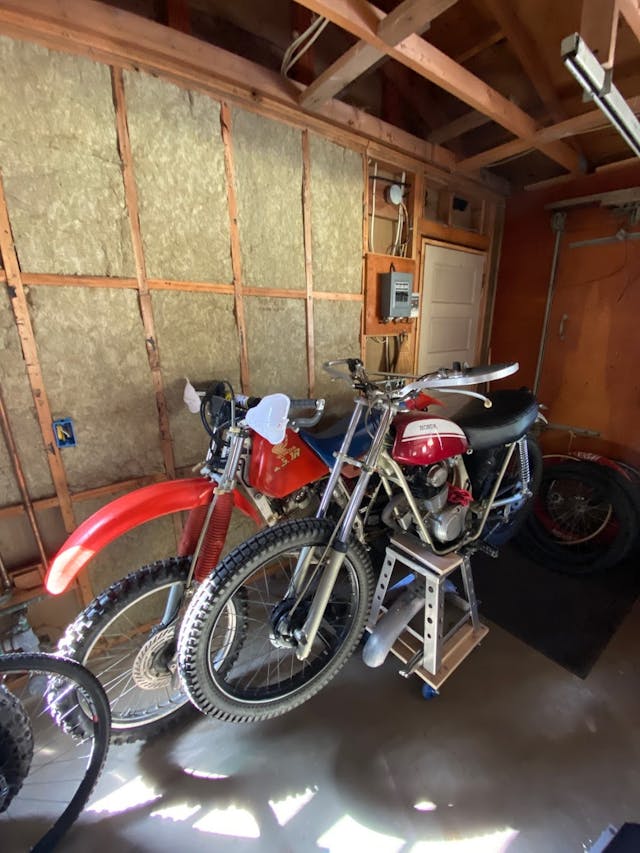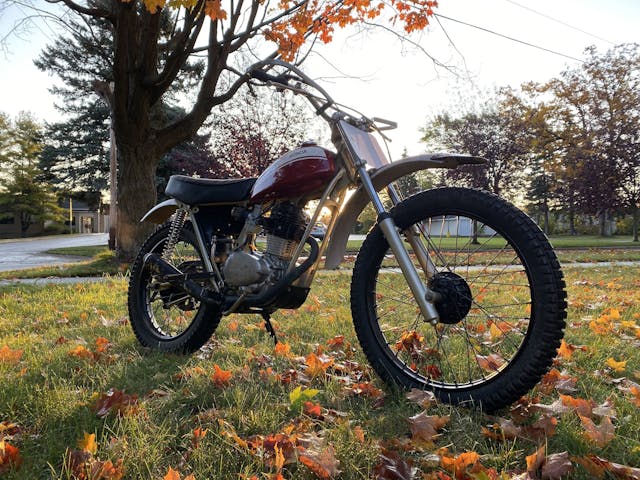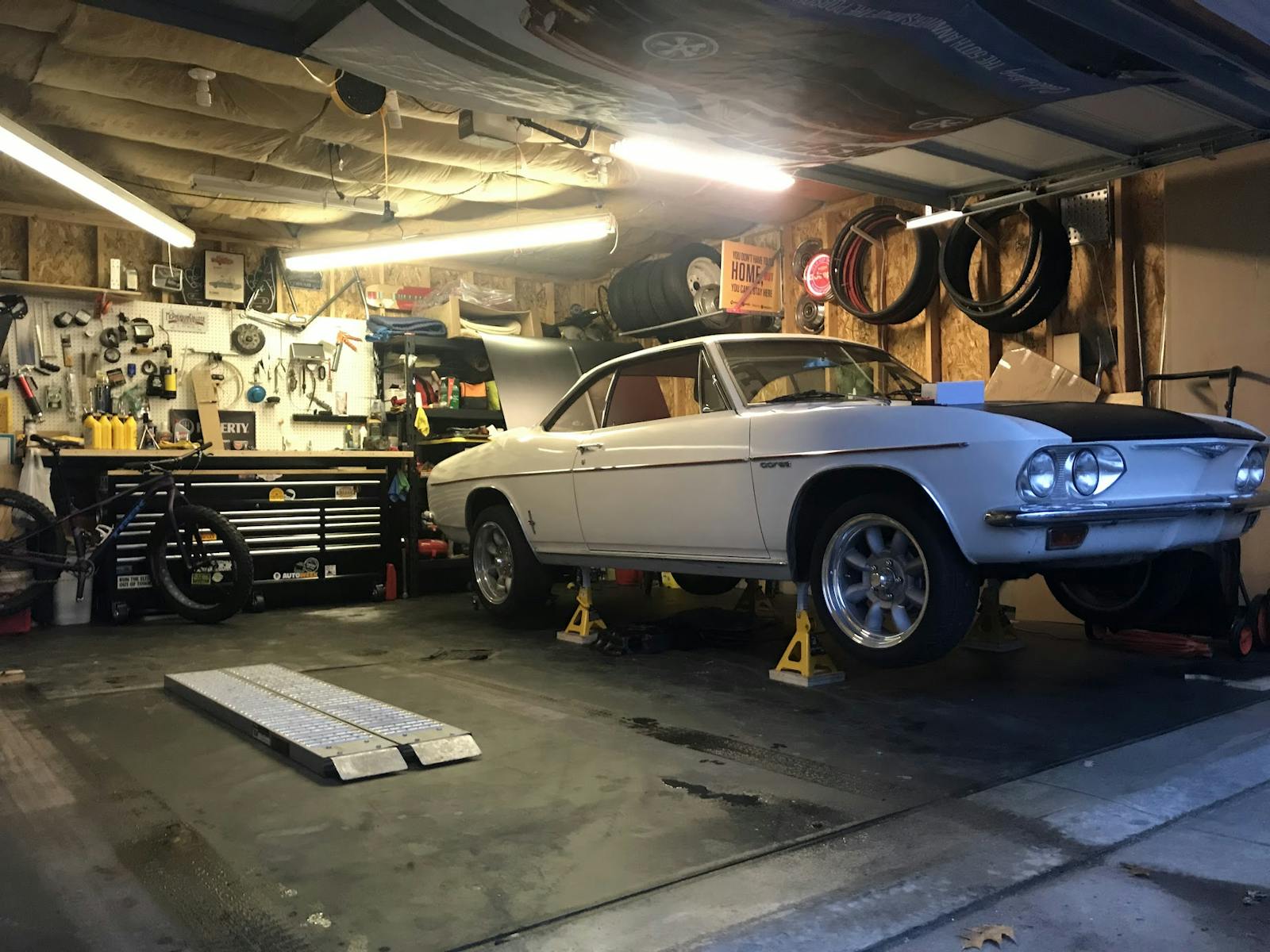Media | Articles
Motorcycle personification and the theory of project debt
The garage is an inspirational place, my own 32×24 cube filled with opportunity. Hulks of potential rest atop yellow jack stands with open hoods, revealing the intricacies of decades-old technology. Each vehicle—though some are more accurately described as an assemblage of parts—has its own personality and attitude. Old things have quirks; sometimes you pat the dash while cranking the starter so it’ll start for you, or refrain from yelling while under the hood so bolts won’t strip their threads. This is all projection, though. These are mechanical objects. They have no feeling or emotion.
We enthusiasts are perfectly aware that our vehicles will not return our love. Yet we ignore their inanimate nature and persist in personifying our beloved mechanical objects. I came to this realization after a conversation with one of our editing staff, a conversation in which he pitied me for acting as if one of my machines felt neglect.
The vehicle in question is my 1972 Honda SL125. This machine has tangled itself deep into my emotions. I wouldn’t even think of selling it, yet I don’t give it the attention that it needs—really, that it deserves. When I bought the Honda, back in October at the Barber Vintage Festival, it was running; when I got it home to Michigan I spent some time tinkering and got it running even smoother. But now it sits forlorn in the corner, no longer running due to a battery delete that requires me to reset the ignition timing.

Two hours. That’s probably all the time that would pass on the wall clock before I got that bike running again. However, the other projects in the garage all seem to take precedent—for no real reason. There is no real organization to how I spend my time inside this three-door box of a building. I leave the house after logging out of my computer for the day, walk the 25 feet to the main door on the west wall, enter, breath a sigh of relief, and then grab a few tools and work on something. Whatever it is that tickles my fancy that evening or Saturday morning gets my time.
Sometimes other factors are at play. Parts at the machine shop, a promise to a friend, or even plain lack of research will keep me from particular tasks. There’s no shortage of things to do and, sometimes, looking at my to-do lists feels like looking at my student loan debt. These cars and motorcycles exist in my mind as a massive pile of obligation, neatly divided into easily calculable amounts of work I owe each vehicle.
Marketplace
Buy and sell classics with confidence

Here’s where the analogy breaks down. I formulated a plan to pay off my student loans, and it worked. There was a light at the end of that tunnel, and it was bright. These projects, though, have no end. There will always be an amount owed greater than zero at the bottom of any of these balance sheets. But why should this cause me angst? These vehicles can’t keep a ledger of the time, parts, or miles I owe them. They aren’t disappointed in me.
No, this sense of indebtedness is entirely my doing. I think I owe the Honda in the corner, and the Model A snugly and immovably tucked between the jack-stand-stranded Austin Healey and the Corvair, which is doing its best impression of a shelf. If I owe these machines, then, by not giving them what they need, I’m neglecting them. It is all a scheme in my head. I know this, but I can’t break free from the emotions I have sunk into these vehicles and the narrative I’ve spun.
The Honda doesn’t even need new parts, or any financial investment—only time. Why hasn’t this purple custom continued to captivate my attention as it did when I first acquired it? Why, when all other projects are at a veritable standstill, do clean my workbench and my organize shelves, thus turning my passive avoidance of the Honda into active neglect?
I have found that if I force myself to do projects, they typically don’t go well. Creating a “payment plan” for this Honda and paying my debt to it by spending X number of minutes or hours each night or week for X amount of time just simply won’t work. This project will still be leaning in the corner, hand out, asking for attention. One of these days that need will be fulfilled, but I hope it’s not holding its breath.




